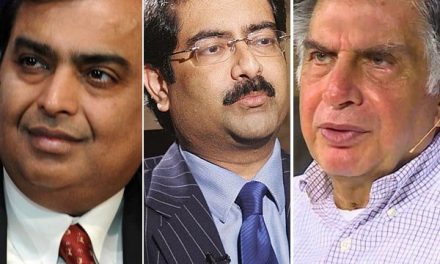VOLUME VII – CHAPTER 9
WARMCHAIR ATTRITION

In your school, you may find some staff don’t like their jobs, don’t like their co-workers, don’t like their Principals, and are waiting to leave. They lose interest in their work. Have already left the institution mentally, but still draw their salary. Infect their fellow – workers with their disappointment and frustration. They simply sit in their chair. Dawdle and procrastinate.
This is known as “Warmchair Attrition.” Advise them. Try to mend them, warn them and then if nothing works, bring down the axe.
Don’t have your room in a corner of the school complex or away in a separate administrative block as some do. Have it centrally located so that all could have easy access and you can also have full control over the whole school. Practice a more inclusive management system, like a Bank Manager who can see everyone.
A school is a knowledge based organization. So you should have only first class degree holders in every subject.
~~~~~
VOLUME VII – CHAPTER 10
INTRA – INSTITUTION INTERACTION

If you are looking to carve a niche for yourself, then provide high quality education at reasonably higher prices.
If you have a school as well as a college then you can “adopt the skill and de-skill” techniques. Students who pass out of your school can be given preference in admissions to the college. If there is a very highly qualified teacher or a career guidance counsellor in the school their services may be utilized by the college and this is up-skilling.
The siblings of college students or children of old students of the school and college can be given priority in admissions. The services of a Professor in the college can be made available to the school.
Vidya Mandir, Mylapore, Chennai gives preference in admission to the children of old students or the siblings of existing students.
The Chettinad College, Chennai utilized the services of Chemistry Ph.D. teacher of the Chettinad Vidyashram (School).
This interaction was very much practiced regularly between the high school and elementary school and the arts/teachers colleges in Sri Ramakrishna Mission Vidyalaya, Coimbatore.
The author found the same sort of mutual cooperation between the Ball State University Teachers’ College and the Burris Model School in the University Campus.
~~~~~
VOLUME VII – CHAPTER 11
SOCIAL COMPETENCE
IS YOUR SCHOOL VALUE – ORIENTED OR GLAMOUR ORIENTED?

Education Management means development of your Social Competence – your ability to move freely and proudly with others and put them at ease even in tricky situations.
Some have a knack of making all people around them happy and composed even in a testing situation. Some have the peculiar gift of making every one unhappy even in a very pleasant atmosphere. Indeed that is a rare quality! Others will be interested in you, if you are interested in others. Even if someone feels uncomfortable, making him feel comfortable is an art.
Normally Managements try to build their institutions on lower salaries for staff, or higher fees from parents and high results. The author was appalled to learn that many schools give a consolidated salary of Rs 4000 – 5000 in schools and 5000 – 6000 in colleges which boast they are autonomous. The Dosa or Chappathi will be good only if the dough is good! It will do good to the managements if they realise this simple truth.
One aspect of your social competence is your relationship with parents. Take them into confidence, explain the need for raising the fees and help them understand your position. At the same time when the economy is going through a bad patch and parents are in the danger of losing jobs, it will not be prudent to raise the fees, or it would amount to hurting with ‘double taxation.’ The reason for this is that even in difficult times when the market is faced with the dread of the vanishing consumer, education is the one field where demand will not come down. People will cut back their expenditure on all other fronts but not in the education of their children as it is an investment for their future.
‘Business India Today’ conducted a Demand Survey of Consumers and found that people have cut their expenditure as under.
Travel – 16.70% Donations – 7.10%
Outside Food – 14.10% Own Transport – 7.00%
Clothing Foot Wear – 13.90% Tobacco – 6.00%
Big Purchases – 13.70% Food At Home – 5.70%
Entertainment – 13.30% Public Transport – 5.00%
Personal Care – 10.50%
Internet / Telecom – 7.40%
Have a look at the newspaper industry. They compete on their editorial quality and not in the number of their trucks carrying newspaper bundles. So also you have to compete with other schools in respect of the ‘quality’ of your school and not in the number of class rooms, computers and school buses. You don’t make your school to be a walled garden of a graveyard but a freely accessible beautiful seamless garden like the one in Sim’s Park at Coonoor or the K.R. Sagar Dam garden at Mysore.
Your social competence lies in how you plan and proceed to develop your school – either as a value oriented school or a glamour oriented school.
MORE OFTEN, BEHAVIOUR IS EMOTION FUELLED

Are you capable of giving space to your staff? Are you someone who hasn’t let success go to your head? Are you a person who doesn’t mind handing over the reins to someone below you if that person is better equipped to handle the job? Do you think you are as good as your team? At the end of the day, can you say that successes are collective? Are you capable of treating your staff at par irrespective of their standing in the institution? Can you go and tell a staff that his/hers is a good idea and make him/her work 18 hours to make it happen?
Can you occasionally ask your staff, “Tell me what it is like here?” then listen, understand and agree in a sincere way. Then you can begin to work with their energy towards progress. Follow it up with, “what would you like to happen”. Then, “That sounds sensible I would like to work with you and exchange my ideas with you.”
Through this method you will be working on the relationship as well as the ideas and there is a less likelihood of resistance. If there is some, it will be easier for you to work with.
Most of the problems arise because of our misunderstanding and misinterpretation of the behaviour and intention of our staff.
When some new unreasonable or over the board behaviour puzzles you, your instinct prompts you immediately to give a name to it such as aggressive, dismissive, threatening, disinterested, interfering, uncommitted, scathing, critical etc.
Why don’t you think that there can be a positive intention at the back of every behaviour? May be that behaviour is emotionally fuelled – non-recognition, hiding feelings of insecurity, isolation by the staff and incompetence.
In one office, a clerk belonging to the reserved category found the work allotted to him beyond his capacity. The Head of the office tried several methods like mentoring, budding, to help him understand his work but the clerk mistook it for treating him badly. So to counter the Head’s efforts, he got together all other members of his ilk in the office and formed an association, himself self styled as President. After that he started talking to the Head not as a clerk but as the Association President! In this case the intention of the Head was positive and that of the clerk negative. When this attitude persisted it led to his transfer to four offices and finally dismissal from service. Haughtiness may pay in the short run, but in the long run it will cause peril.
If you misinterpret your staff behaviour and give it a label according to your line of thinking, then you will be damaging and dismantling your relationship with the individual staff or a group and that will impose a limitation to your influence. See that a gap does not arise; if it is arises, close it soon before it develops into a big chasm.
Realize that your success will be determined by the spectrum of behaviour patterns available to you. What is the degree of flexibility you have in getting what you want? Secondly don’t give false labels. Thirdly when you face some unreasonable behaviour, “work with it, understand it, find agreement and establish rapport. Till you are able to influence the other party suspend your judgment, because once you have formed a judgment, your chances of influencing them are limited or closed.
YOU STAND ALONE AT THE TOP

In the Tamil Classic Thirukkural there is a kural (Couplet) which says ‘Aim always high’. You are evaluated by how high you have set your sights? Have you set any limit to your achievement level? What do you think you are capable of? Remember that at the age of 14 Michael Bell, now CEO of Bell Computers said when asked what he wanted to do with his life. He said, I am going to compete with IBM,” just as it was a matter of time he said, “I am going.” He had self confidence, strength of will and commitment; if he had them can’t you?
As David Molden says, “The meaning of ‘success’ varies, depending on the mind and heart of the individual.”
Welcome competition. Be not afraid of it. Encourage your staff also to be so. Those who come up to the top are always focused and ambitious and make their own path. Their very thinking that they should stand out from the rest will act as a very potent motivating force. In the school existing staff may turn hostile to a new corner who they feel would become a threat to their entrenched position. You have to do a fine balancing act so that the atmosphere does not sour the morale and relationships among the staff. You should instill in your staff the morale and realization that competition should be performance based and not person based.
Sometimes non-authority situations call for a high degree of diplomacy, tact and persuasion. In July 1983 one day Commodre Satbir, Commissioner, KVS called the author and said (in an unusually soft endearing tone), “Madam, Prime Minister Indira Gandhi wants a mass Community Singing Programme on 14th November at the Nehru Stadium. KVS has been allotted 2500 singers and 7500 spectators.
I am told by Mrs. G. Krishnanand that you have done very well with this sort of thing at Madras in February, 1979. I understand that you are the best person for the job. This is a pride project for us and I really hope that you will help KVS come out with flying colours.” The author being a psychologist knew he was putting some icing on the cake.
The author had to get 16 music teachers first trained to sing the National songs in the different languages in unison so that they can in turn train the students to sing like that. This programme went on from August, 1st to 14th, then from 16th August to 10th September. 2500 students from all the 12 KVS in Delhi had to be transported to Delhi had Cantonment and also given breakfast after the practice. On 11,12,13, November,1984, 2500 participants and 7500 spectators were transported to the Jawaharlal Nehru Stadium, provided transported to the Jawaharlal Nehru Stadium, provided transport and breakfast.
In the KVS, the Principal, the Asst. Commissioner and the Commissioner – these three have got authority and power. The Deputy Commissioner, Administration and Deputy Commissioner, Finance have power and authority and respected and pleased by the Principals and the Asst. Commissioner because they hold the power to transfer and the purse strings respectively. The Deputy Commissioner, Academic and Training are respected only for the position in the Headquarters. The Education Officers in the Regions and the Headquarters have neither authority nor power. If at all they get things done it is only because of their human relations. They are like the Saturn’s Moons.
You can find leadership at all levels. Among 20 primary teachers you may find one sparkling person. There may be a dozen peons but one of them will stand out. There may be half-a-dozen lab. Assistants but one of them may out shine others. All others in that category may be looking up to this one person. One may be senior most in that category, but he may not be a sparkler. Seniority and leadership may not and need not go together.
The time horizon at the top is longer. For Sri Kuruvilla Jacob who became Head Master at the age of 27 the time horizon was 33 years. For Sri Balakrishna Joshi who became head Master at the age of 35 the time horizon was 25 years. But as you go down this management chain – for the Vice- Principal, Senior most P.G.T. the time horizon may become less. But at the top one has to be creative and it is quite lonely at the top. At the top of the Mount Everest only one can stand.
IS YOUR HEART WARM

The Sufi Masters in Islam are called AHLE DIL – People of the heart. If you take their advice, then teaching and management have no meaning unless they are warmed by emotions of love. Your voice must speak of harmony and your pen should write in moderation. Your management must be a seamless weaving of the personal and the pedagogic.
You should let people go and the make their own mistakes. We should not provide solution; but ask questions that will help them to take the decisions themselves.
Have you thought how you can ensure your staff to stay sharp and focused! Have you find out.
- If your staffs are successfully able to go through a tiring day without any break.
- If any staff has too much of work load.
- If they are able to display their multi tasking skills.
- If any staff member spends too much time on the computer.
- If any staff member goes out often for a coffee break or a puff.
- If any staff member’s physical and mental health are affected by his work pressure.
- If any one’s personal problems impinge on his professional effectiveness.
- If anyone is an isolate, moody, withdrawn, irritable, quarrelsome, argumentative.
To remove these, create a happy work environment and developing smooth inter-personal relations is your task. And your main task is to create a passion – that underlying emotion which drives the staff towards excellence.
Can you emulate the example of HCL Technologies who developed “EPIC” – Employee Passion Indicative Count, keeping the staff’s aspirational and motivational levels in mind?
Encourage staff to spare a few minutes to try their hand at a Jigsaw Puzzle, Sudoku, Chess – great avenues to stay sharp at work.
Have a Gym, a treadmill and a cycle for your staff. Ask them to pack in 10 to 15 minutes during the lunch interval or their leisure periods.
Provide them a Table Tennis or a Carom Board for a quick game to break the monotony. Provide these in a room away from the classes so that their relaxation does not affect the class room study.
Take them out for a picnic or an outbound activity.
These will help the staff to adopt a more balanced approach to work with emphasis on both tolerance and perseverance.
GET READY TO BE BAPTIZED

Another important aspect of your social competence is how you deal with others during the sudden moments when your mask slips off.
The author was having a discussion with his higher officer one day. For more than half-an-hour the officer was all sweetness personified. He was a gentleman with a sensitive attitude and a cultivated polish in his behaviour. A clerk entered the room and placed a file on his table. Before he could complete his sentence, I was searching for the file,” the officer stared at him and started rebuking him severely.
The mask slipped. The real ‘HE’ came out in sharp features and in that one moment of explosion he damaged all the days he had spent to build up that image for the author.
The author was travelling along with the Secretary of a school. He was a very genial and amiable person. As the car was moving the driver absentmindedly missed a U turn and shot ahead. In a flash the Secretary sitting behind the driver gave him a hard slap on his back and yelled.
“Next U turn is after 2 Kilometer you are wasting both petrol and time. I will miss my appointment with the Director.” The driver was jolted. Luckily the road was free. So no accident happened.
A true balance of trust, human understanding and symbiotic working between different levels – creating this will be the barometer of your success. Not only you should be superior in knowledge, but also display patience to enable learning and wisdom. In his career the author has met, closely moved and learnt a lot from one such person – (a former colleague) Prof. H. Visweswaran, former Principal, College of Education, Sri Ramakrishna Mission Vidyalaya, Coimbatore.
Another person who had helped the author improve his social competence was Sri. E. Venkatesalu Naidu, former Head Master, Sri Rajalakshmi Mills High School, Coimbatore. He helped the author learn that every person’s problem was a case study by itself and that by analyzing and understanding that, we can enrich our learning.
Another great person who helped the author to progress in the field of Social Competence was Sri. T.S. Avinashilingam, (His Mentor) who taught him ways to handle people, get and give feedback, maintain work life balance, ways of handling high pressure situations while still respecting people. The strongest lesson the author had learnt from him was that you shall lead from the front. First and foremost you are a teacher and then only a Principal. You shall be like a pilot who flies in the “Weathering Heights.” Weather is a Science but weather flying is an art. This art can be perfected only through experience in actual conditions. So also pedagogy is a Science but teaching is an art. You – the pedagogy pilot should know how to fly (teach) in adverse, turbulent and trying conditions.
Some pilots are weather shy. So also some Principals are teaching shy. They prefer administration. Weather flying can be described by 3 comers of a triangle representing 3 important factors.
a) The weather – – An unpredictable factor with several Variables.
b) The aircraft – Has fixed parameters lime limitations, Speed, thrust, etc.
) The human element – The pilot, who is required to match the fixed elements to the variables in
weather conditions.
Similarly
a) The student – An ebullient, dynamic group with unpredictable emotional reactions.
b) The school & Syllabus- Have fixed parameters like
infrastructure, syllabus to be
completed, programmes to be
conducted.
c) The teacher – Who has to juxtapose the above two
and effect a good Teaching – Learning
process according to the classroom
conditions. On him depend the safe
landing.
Only experience and training will help you to bring the human element to the required level of efficiency and effectiveness. You have to get “Baptized by the fire.”
PREPARE A ‘HUMAN RESOURCE BALANCE SHEET’

Your skills of team management, human management, soft skills, your area of expertise, your thorough understanding of the institution’s philosophy, your work ethos, your leadership traits like a visionary mindset, assertiveness, humility, creativity, openness, high intellect, honesty, competency – all these coupled with a willingness to learn the job and excel in it – if you are the repository of all these – then you can be sure of moving Have you ever tried to find out how your staff feel – their opinions, morale, performance level and other areas of concern? Have you tried to measure their satisfaction and changes, if any over a period of time? If you put in place an employee attitude survey that will help you as a useful diagnostic aid to feel the pulse of your staff. This amounts to collecting a feedback from your staff regarding the success of your management policy. Their ringside view of the institution and according to them what are the ‘i’s and ‘t’s to be dotted and crossed and their unfulfilled expectations. This type of survey will help to improve management – staff relations, motivate them because their opinions are sought and also provide them with a sense of fulfillment in the job.
Mr. Louis E. Tagliaferri, a Management Consultant compares this type of staff attitude survey to “A financial balance sheet providing a picture of the human resource climate at a particular time!”
The survey can be done through a self-completion questionnaire comprising a set of multiple choice questions such as:-
a) I am aware of my job requirements, in the classroom for the progress of the school.
b) I am happy with the work environment provided for me.
c) My contribution is valued by the management.
d) I am in perfect agreement with the philosophy of the institution.
e) My talents and skills are fully utilized by the management.
f) Due respect is given to me by the management and my
g) I am fully trained for my work and I make full use of it in my daily work.
h) My initiative is encouraged.
i) We are periodically informed of the policy changes effected by the management.
j) I am happy I am part of this school team.
k) I am happy with my benefits.
l) My achievements are recognized.
m) The Principal usually consults me while taking any decisions relating to my work.
n) The management shows due concern regarding my work – life balance.
o)I feel the following changes may be considered to improve the effectiveness of the school.
The responses of the staff can be compiled, collated and analyzed under various heads to ensure transparency and honesty in their answers. They may be asked not to sign at the end because this anonymity will encourage them to be more open, frank and forthright in their answers and it is important to share the results with the staff to avoid an impression that this exercise is just sound and fury; on the other hand it will make them happy that they work in an institution that listens. Once they learn that they are part of the decision – making process their commitment to the institution will increase manifold.
This idea had been implemented by the author as Dy. Director with the trainees at the Community Development centre and as Principal of Kendriya Vidyalayas. He found it very useful as part of his educational management philosophy.
LET YOUR SCHOOL BECOME A CATALYTIC AGENT IN THE LIVES OF THE ‘UNCOVERED’

As a part of SSR (School Social Responsibility) can you put into service a mobile van on weekends to educate the children in hill areas, remote forest areas or interior places which are not taken care of by the State Govt. where young adults are not educated. This van may show Science experiments to school Children, give books and magazines to read or make them functionally literate.
In Kerala the State Consumer Federations runs a Triveni Super Store which traverses a 200 Km. canal route covering 51 landing points under 30 Panchayats with an inventory of 2000 items reaching out to 15000 families.
Like this you may think of organising a floating school.
Many children after leaving school are not employable though educated. Take a cue from Hafiz Khan of Chennai founder of E-Zone along with “Turning Point” of Thomas K. George of Palakkad. They train and prepare final year students for interviews at the time of recruitment. This is “Employability
Training” having two compartments – One soft skills training ending in better communication, personality development and interpersonal skills and second aptitude training, logical ability reasoning and problem solving.
Can you think of organising an outfit like this in your school itself which can make a difference in the levels of your students by assessing their deficiency levels and bring them up to match exacting standards of the Companies.
‘Right step finishing school’ of Anjoli Rege at Chennai gives training in language, resume writing, relationship skills, voice modulation and managing angry people.
Uma Krishnamoorthy’s “Spring Board Career Development Services” trains people in grooming and choice of appropriate foot wear, sari draping, overcoming inhibitions and acquiring a refined accent.
These are some areas you can operate for the benefit of your students. This is going beyond the curriculum taking social responsibility for the future of your students.
During the last 41 years of his service in the field of education, the author had established a habit of utilizing the last one hour of the day in the office (if there was no important work) to sit quietly and chew the days observations, experiences, the essence of anything read, gist of conversations carried during the day. Then he will record all these in his files. Besides, he used to do some serious reading at night from 8 – 10 PM daily. What his acute administrative ears listened and eyes observed will all be recorded. Every one of these will be related to education. It is these distilled thoughts that have been recorded under certain headings related to Education Management and narrated here.
~~~~~
ONE WHO KNOWS (VOL VII – CHAPTERS 9-11)
(DIMENSIONS OF THE LIFE AND WORK OF A PRINCIPAL)

816) One who will not allow his institution to become mouse pads or coffee mugs.
817) One whose institution’s core value is integrity and makes it come alive by getting his people to identify and describe what this means to them and gives them the freedom and tours to operate within the values espoused.
818) One who collects stories of good and bad behaviour and publicizes it throughout the institution – Especially stories where people have stood the temptation and have stood out.
819) One who makes rewards dependent not only on delivering the right results but also on displaying the right behaviour.
820) One who is a leader – one of a kind.
821) One who always remembers the tough situations that shaped him.
822) One who does not see himself as a helpless victim, but examines his responses and takes charge of his own transformation.
823) One who learns from experiences and is able to see a connection among 3 things.
a) Aspirations – What he thinks is his ideal self
b) Motivations – What he must value
c) Learning – How he as a person learns most effectively.
824) One who as an experienced operating manager develops “A teachable point of view” and sees through the lens of his experience.
825) One who as a “SWIKRITI” – (Sanskrit) – accepts the validity of different views without being judgemental and yet following his own way of thinking without offence to anyone.
826) One who has understood from the story of the interaction between the poetess of Avvaiyar and (Lord Karthik) the young cowherd boy regarding a hot or a cold fruit, what the boy meant and how the poetess understood it were different and that to understand a question or suggestion properly, one must be humble.
827) One who knows that the most important lessons are/not taught but learnt from experience.
828) One who knows that he can learn only if he seeks the lessons.
829) One who knows that the experience is not important, but what he does with that experience is important.
830) One who knows that he must constantly adapt to emerging circumstances.
831) One who learns from the experiences of others.
832) One who quotes Galileo to his staff that they cannot teach a person anything and that they can only help him/her to find it within himself/herself.
833) One who advises his staff and students that their negative traits are “Bonsai Traps.”
834) One who follows Warren Bennis’s advice that the primary responsibility for effective Management Development resides in himself and that he has to have nine traits:
a) Develop Self-Confidence.
b) Develop Self-Awareness.
c) Develop Life Goals.
d) Become Humane.
e) Build Con-Credibility.
f) Deal with Ambiguity.
g) Cope with Setback.
h) Develop Adaptability.
i) Maintain Integrity.
j) Maintain Integrity i.e. Being true-to himself.
a – d – Inner World.
e – g – World of getting things done.
h – i – World of people.
835) One who knows that his Managerial Development happens 99 % when
is in the field and 1% in his chamber.
836) One who doesn’t micro manage, but has micro interest, one who knows the details and one who cares about the details.
837) One who has an intimate knowledge of what is going on, but doesn’t tell people what to do.
838) One who asks three questions:
a) What might it not be good for?
b) When might it not work?
c) What could be its draw backs?
839) One who knows that if he tries to come up with a strategy, that does everything for everyone, he will end up achieving nothing.
840) One who knows that triggers and barriers are like the Yin and Yang of Tao.
841) One who is aware of the two Bonsai Traps:
a) I am more competent at work that those whom I consider my peers.
b) I have better human relations than those whom I consider my peers
842) One who thanks the person who points out his mistake, considering him as his Clementine mirror, which he will take seriously and work upon it.
843) One who knows that arrogance and vanity have no place in the discharge of official functions and duties.
844) One who looks people in the eye and makes sure that both are fully present in the interaction.
845) One who knows that consensus and agreement are reached faster than out of a heated and over lapping conversation.
846) One who says what he means in a simple way, and asks the other person to repeat if he doesn’t understand.
847) One who is always focused throughout the conversation.
848) One who never boasts , “I have never taken leave even for a day.”
849) One who relays a little now and then, because when he comes back to work, his judgement is surer.
850) One who says:
I hope for nothing.
I fear none and nothing.
I am free.
EMINENT THINKERS (VOL VII – CHAPTERS 9 – 11)
(Whose ideas have been adapted for Education Management)

578) Ashutosh Sinha
579) Mike George
580) John Halls
581) Chittaranjan Das
582) Rachael Robertson
583) Srijan Pal Singh
584) Alexander Nehamas
585) Alex Pentland
586) Alvin Toffler
587) Biju Mathew
588) Arun Kumar
589) Arjun Subramanian
590) Nassim Nicholas Taleb
591) Deepak Kaul
592) Liz Murray
593) Vinay Sitapati
594) Aldous Huxley
595) Cohen Bradford
596) Prahlad Krishnan
597) Konosuke Matsushita
598) L.N. Rangarajan
599) S.K. Misra
600) Col. Vinay B. Dalvi
601) Bakhtiar Dadabhoy
602) Haigreve Khaitan
603) Meena Ganesh
604) Ruth Porat
605) Zia Mody
~~~~~
HOW can darkness conquer or stand up to light? Krishna is “Premaswarupa” and He can be won over only by “Prema”. Audacity cannot approach Him. Actors in films, however, correct their accouterments (equipment) and intonation; they can never be the Real. Not even the biggest Scientist can understand Me by means of the categories to which he is accustomed. I always smile at those who deride Me and even those who praise Me. I am always full of “Santhosh”, whatever may happen. Nothing can come in the way of My smile. Derision and Calumny only tend to make it grow better and happier. – Bhagawan Sri Sathya Sai Baba





